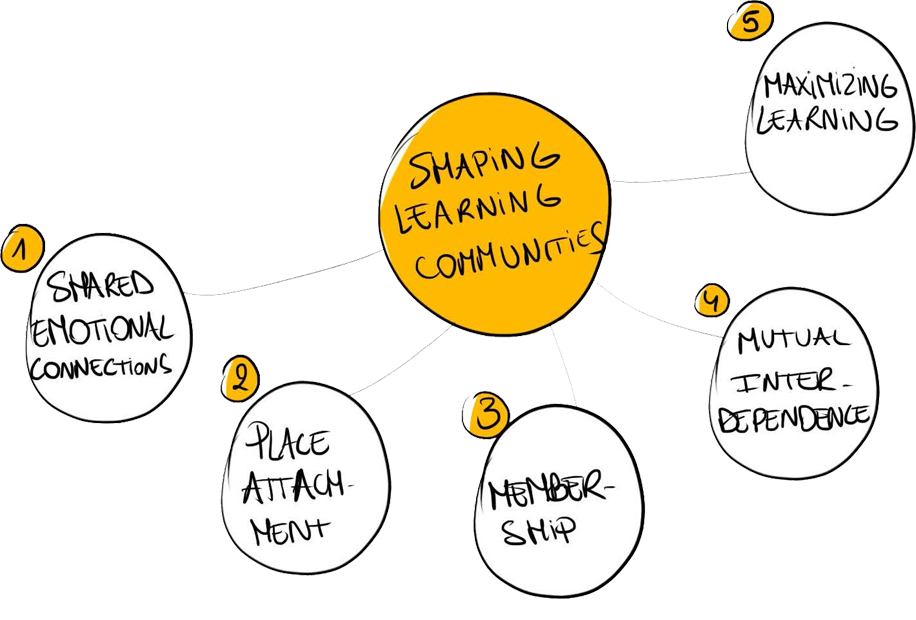Shaping Successful Graduation Journeys
Learning in Communities to support student motivation & wellbeing during MSc. Graduation
In the Spring of 2020, IDE academic staff Dr. Ir. Mieke van der Bijl-Brouwer and Dr. Rebecca Price began looking into how COVID-19 was impacting the wellbeing of IDE’s students. From this initial investigation, they discovered that graduate students, in particular, face various challenges now that they must work from home on an intensive individual project. Even without a pandemic at play, they found that most graduate students are under intense pressure to complete and excel in their final project. They also are faced with hurdles such as a lack of routine and motivation, an unhealthy focus on performance, difficulties in making decisions in the design process, and so on.
The project Shaping Successful Graduation Journeys was designed with the goal to develop initiatives and guidelines for TU Delft MSc. graduation journeys that promote student success, engagement and inclusivity by integrating wellbeing, learning and human connection.
The project was led by researcher Marie van den Bergh, supported by the Study Climate Programme. Various interventions were prototyped and tested at the faculties of IDE, ME and EEMCS.
Approach
The project adopted systemic design and co-creation. Looking the whole system and involving all stakeholders when creating solutions. "There is not one expert when it comes to shaping successful graduation journeys", so the project team worked together with and involveved many different stakeholders.The approach of Research through Design (RtD) was applied.
The project helped identify aspects essential for shaping learning communities, described in the figure.

Interventions
Evaluation and more background can be found in the project report.
-
These were developed for supervisor peer groups, student peer groups and student - supervisor groups to share experiences and discuss challenges and ideas around graduation. This kind of workshops were highly desirable, as these offered an apportunity to build upon each other’s ideas and learn from each other.
-
These offer a structured means for groups to build a bond of trust. By creating space to share feelings and plans around how they are doing, what they are looking forward to, challenges they would like to discuss with the group and what their next week would look like. A simple check-in with those we can regularly interact with, can encourage the feelings of beloning and motivation.
-
The goal of the program was to connect students and create graduating cohorts, a community that supports and motivates students while pandemic restrictions were in place. The program ran for twenty weeks, which is the same time as the duration of a nominal graduation project.
Project Background
Your final design project - "Is it your masterpiece project or a great building block in your life-career-journey?"
Article by Marie Van den Bergh
"100 days" - Graduating During Covid-19: Part 1
Article By Rebecca Price
'100 days' - Graduating during COVID-19: Part 2
Article by Rebecca Price
Current Status
At the faculty of EEMCS post pilot, a different approach was taken, i.e. focusing on the development of skills for collaboration and research earlier along the student journey. For example, the CS (Computer Science) and DSAIT (Data Science, Artificial Intelligence and technology) programmes include mandatory group work in all Q2 courses, followed up by responsible engineering courses in Q3. More focus is also given to skills development in Bachelor programmes.
Post COVID-19 the need for stimulating graduating cohorts diminished somewhat, as research groups and on-campus study groups came back to life; and students could once again revive their social activites and connections on and off campus too. Further investigation of the graudation journey with supervisors and students, post COVID, revealed the specific needs for more dialogue, communication and collaboration between students and their graduation supervisors.
A student and supervisory team workshop along with interventions from the project have been included in a broader toolkit for Collaborative Learning. To support learning in communities across various collaborations at TU Delft.
